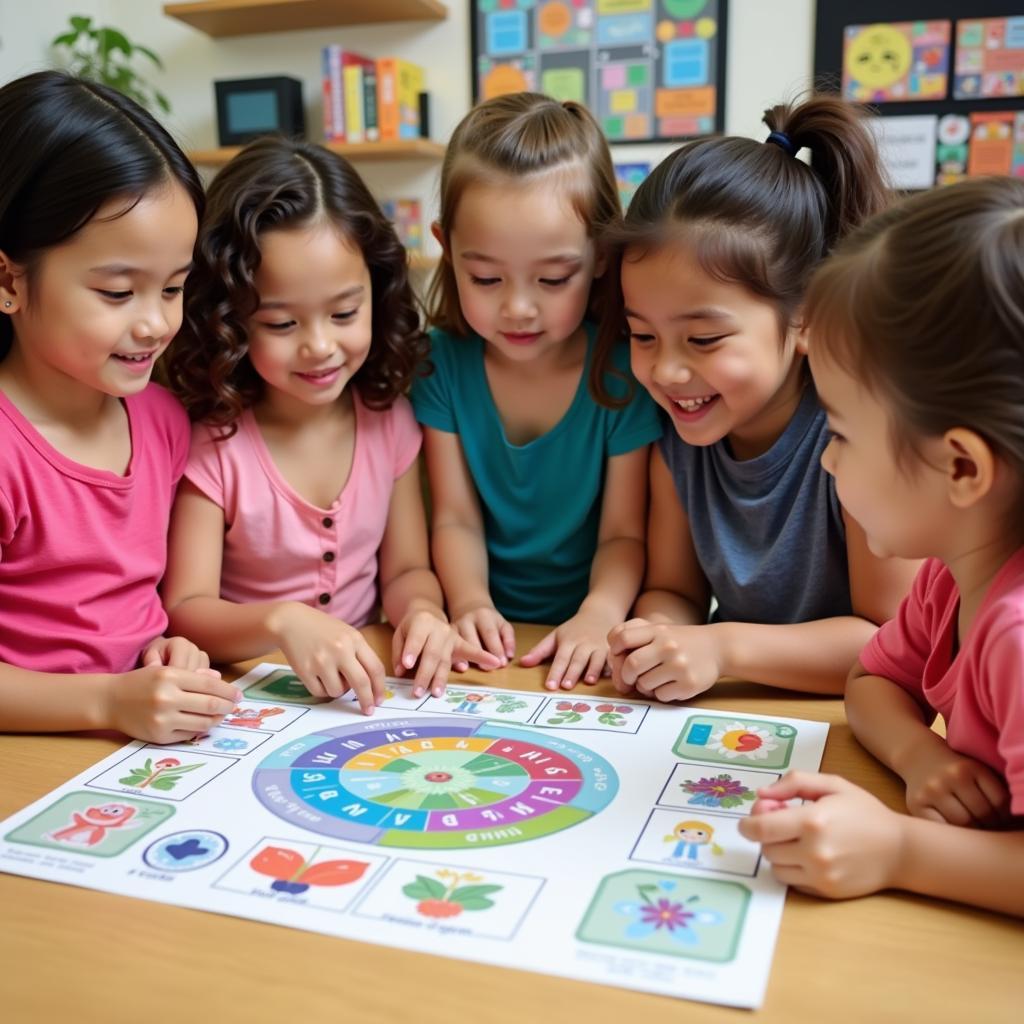Educational games for children are increasingly popular as an effective method to foster holistic development, encompassing both intellectual and emotional growth. Integrating life skills lessons into games makes learning more accessible and memorable for children, offering a naturally engaging alternative to traditional educational approaches. Let’s delve deeper into the benefits of using games to teach life skills to children. You might also like to read about essential management skills.
Why Are Life Skills Games Important for Children?
Life skills are fundamental to a child’s future success. From managing emotions and effective communication to problem-solving and creative thinking, these skills are crucial for children to adapt and thrive in an increasingly complex social environment. Life skills games not only provide knowledge but also train children to apply these skills in real-world scenarios through simulated situations.
Benefits of Games in Developing Life Skills
- Spark Learning Enthusiasm: Children are naturally drawn to fun and entertaining activities. Games serve as a bridge to make learning more appealing and engaging.
- Enhance Logical Thinking: Many games require players to think critically, analyze situations, and make decisions. This helps children develop logical reasoning and problem-solving abilities.
- Improve Teamwork Skills: Some games encourage cooperation and communication among team members, fostering teamwork and effective communication skills in children.
- Cultivate Perseverance and Discipline: Overcoming challenges in games helps children build persistence, patience, and discipline.
How to Choose Suitable Life Skills Games for Children
Selecting games that align with a child’s age and interests is crucial. Parents should carefully examine the content and features of each game to ensure safety and educational effectiveness. You can learn more about time management skills workshop.
Criteria for Choosing Games for Children
- Age-Appropriate Content: Choose games with content suitable for a child’s cognitive and psychological development.
- High Educational Value: Prioritize games that are educational, helping children learn knowledge and develop skills.
- Safe and Wholesome: Ensure games are free from violence, offensive content, or addictive elements.
- User-Friendly Interface: The game interface should be simple and easy to understand for children to navigate.
“Choosing games that are suitable for children’s age and interests is extremely important. Parents need to consider carefully to ensure the game brings maximum educational benefits to children.” – Nguyen Thi Lan Anh, Child Educational Psychology Expert
Conclusion
Life skills games are a valuable tool in children’s education. However, parental guidance and supervision are necessary to ensure children use games effectively and safely. Combining games with real-world activities will help children develop life skills comprehensively, preparing them for the future. You can also learn more about time management skills in English.
FAQ
- How do I know which games are suitable for my child? Research the game’s content, recommended age, and user reviews.
- Does playing too many games affect children’s health? Excessive gaming can affect eyesight, sleep, and overall health.
- How long should children play games each day? Gaming time should be limited, around 1-2 hours per day.
- Should children play online games? Carefully select online games that are safe and age-appropriate for children.
- How to balance children’s study and gaming time? Establish a reasonable schedule for children, ensuring time for both learning and entertainment.
- Can games completely replace traditional educational methods? Games are a supplementary tool and cannot entirely replace traditional educational methods.
- How to guide children to play games effectively? Parents should play and discuss the game content with children, helping them draw lessons and experiences.
Common Concerns and Questions.
Parents are often concerned about their children’s game addiction and neglecting their studies. However, with appropriate game selection and proper guidance, games can become a powerful tool to support children’s learning and life skills development.
Further Reading and Related Articles.
You can also refer to articles about GOAL life skills lesson plans and some soft skills in English.
